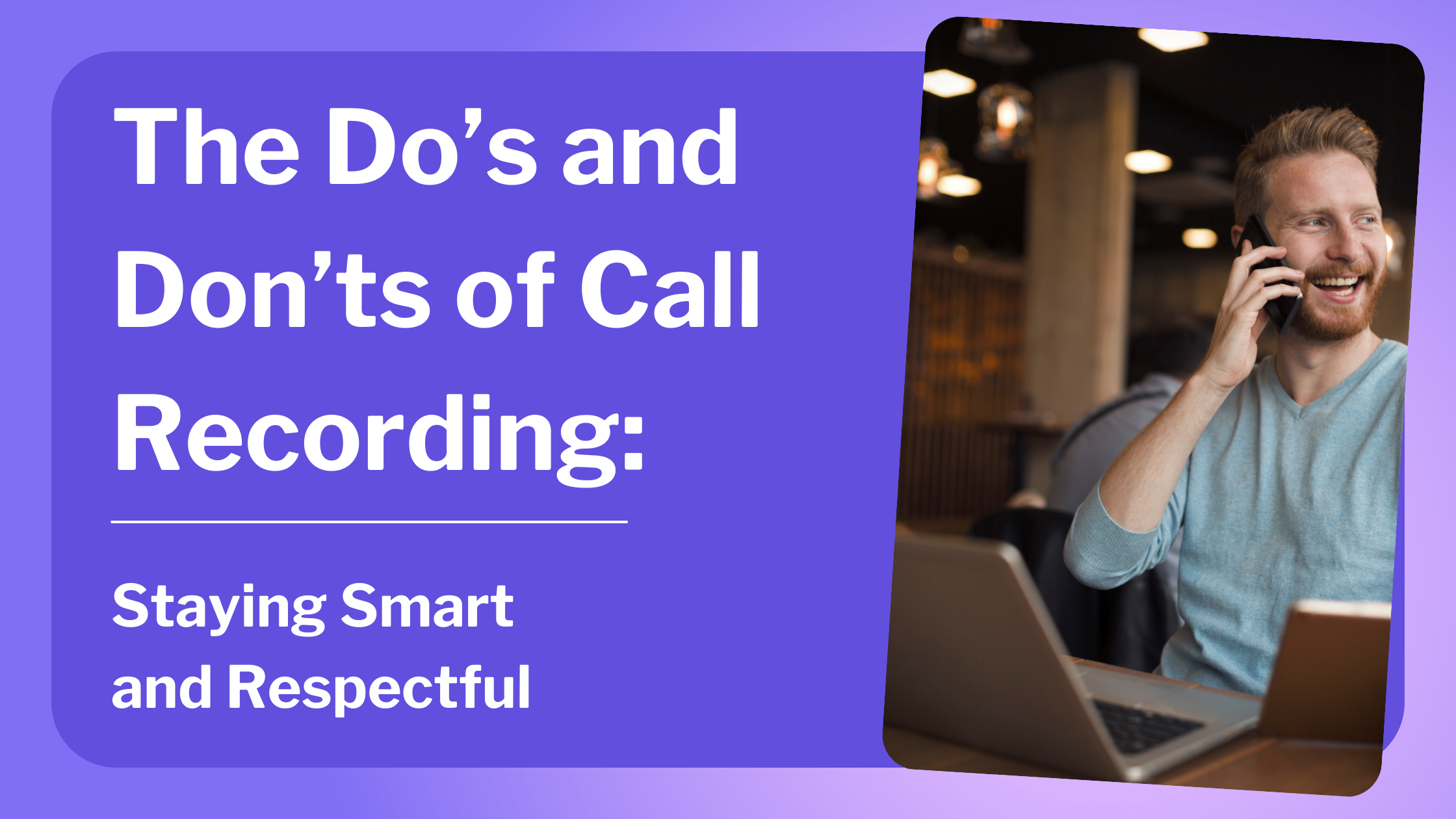
Published 09/08/25
Recording Without Regret
Call recording can be one of the most useful tools you have for clarity, safety, and peace of mind. But like any powerful tool, it can backfire if you misuse it.
The good news? Staying on the right side of both the law and your own integrity is simple—if you follow a few key guidelines.
This post lays out the do’s and don’ts of call recording so you can record with confidence, not confusion.
The Do’s of Call Recording
1. Do Know the Laws First
Every state or country has its own rules. Some require only one-party consent, others require all-party consent. Always check your local laws before hitting record.
2. Do Be Transparent When in Doubt
Even in one-party states, being upfront (“I’d like to record this call for accuracy, are you okay with that?”) prevents misunderstandings. Transparency often reduces conflict.
3. Do Use a Reliable Tool
Shaky apps can drop recordings or store them unsafely. iCaughtYou offers secure, one-tap call recording you can trust.
4. Do Keep Recordings Organized
Label them by name, date, or purpose so you’re not scrolling endlessly later. A well-kept record is far more useful than a messy archive.
5. Do Use Recordings for Peace of Mind
The best use of recordings is clarity: remembering details, documenting harassment, and protecting yourself when things get complicated.
The Don’ts of Call Recording
1. Don’t Record Without Consent Where It’s Illegal
If you’re in a two-party consent state (like California or Florida), secretly recording without disclosure could land you in legal trouble.
2. Don’t Use Recordings as Weapons
Recordings are for your safety and clarity—not for revenge, threats, or public exposure. That can escalate situations instead of resolving them.
3. Don’t Store Recordings Carelessly
Unprotected files on your phone are vulnerable. Keep them in a secure app like iCaughtYou, not floating in a random folder.
4. Don’t Forget Boundaries Still Matter
Recording someone doesn’t give you control over them. Use it as a tool to reinforce your boundaries, not to push theirs.
5. Don’t Over-Record
Not every call needs to be saved. Record with intention, delete what you don’t need, and avoid unnecessary clutter.
Why Respect Matters as Much as the Law
Laws protect you legally, but respect protects your relationships. Even if it’s legal to record without telling someone, consider the long-term trust at stake.
When you use call recording responsibly, you show that your goal is fairness and clarity—not catching someone off guard.
iCaughtYou: The Smarter Way to Record Calls
With iCaughtYou, recording isn’t complicated or risky. You get:
One-tap recording
Secure storage that respects your privacy
Organized playback for easy recall
It’s the responsible way to record—because your peace of mind deserves the right protection.
Bottom Line: Smart Recording = Safe Recording
Recording calls can protect you, empower you, and simplify your life. But only if you approach it the right way. Follow the do’s, avoid the don’ts, and you’ll always stay safe and respectful.
Record Smarter Today
Make call recording work for you, not against you. Try iCaughtYou today
Try iCaughtYou today
Further Reading
Call Recording Consent Laws by State – Justia
Everyday Uses for Call Recording You Haven’t Thought Of – iCaughtYou Blog